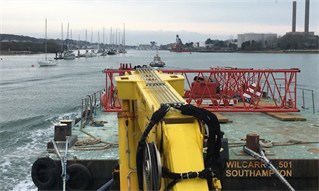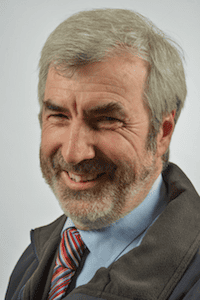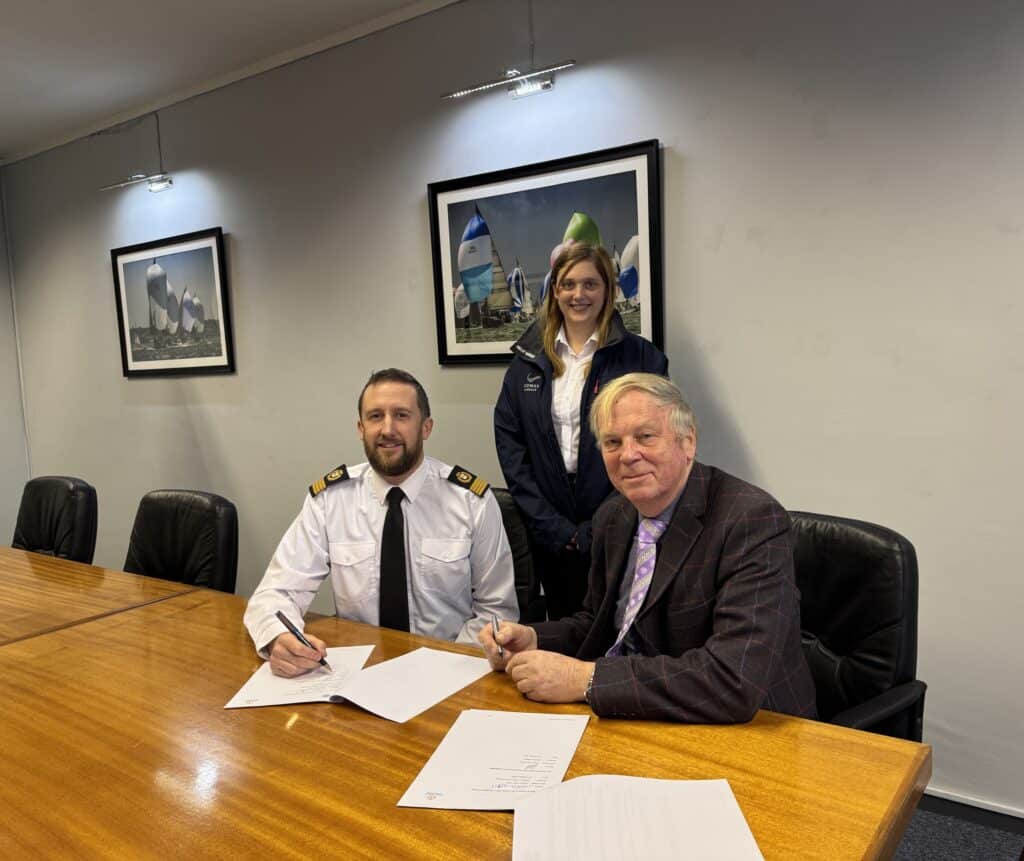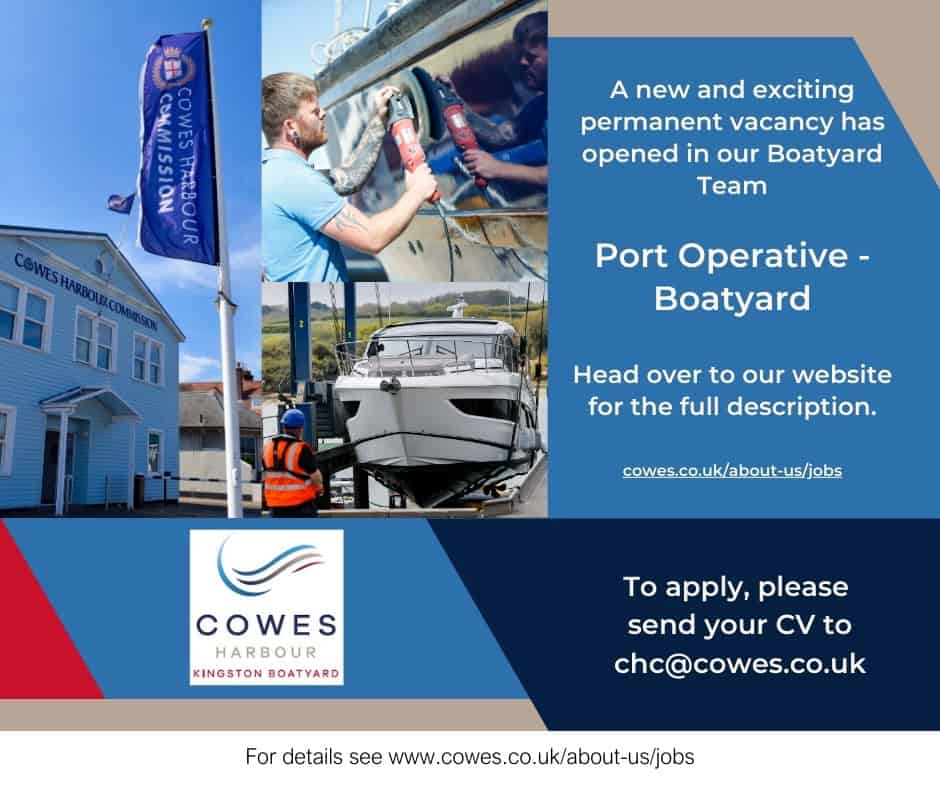
 Cowes Harbour Commission’s appointed ‘Designated Person’ for safety, Capt. Martin Phipps MBE (previously Harbour Master at Southampton Port), has been talking about the role of Designated Person, how it originated, and how Cowes Harbour’s compliance with the Port Marine Safety Code is monitored.
Cowes Harbour Commission’s appointed ‘Designated Person’ for safety, Capt. Martin Phipps MBE (previously Harbour Master at Southampton Port), has been talking about the role of Designated Person, how it originated, and how Cowes Harbour’s compliance with the Port Marine Safety Code is monitored.
How did the role of Designated Person originate and why? What does the role encompass?
Capt. Martin Phipps MBE: “The role of Designated Person came out of the Sea Empress disaster in 1996 when the oil tanker ran aground approaching Milford Haven and spilled 72,000 tonnes of oil over 120 miles of coastline. This was a major incident that caused a lot of pollution. As a result of the incident enquiry, the Department for Transport introduced the ‘Port Marine Safety Code’ (the Code), which all harbours have to adhere to, and which was developed to improve safety in UK ports and so harbour authorities could manage their risk-based marine operations to nationally agreed standards.
“Also from the Code came the introduction of the ‘duty holder’, which in our case is the Cowes Harbour Commissioners, and a ‘Designated Person’ who is someone who has direct access to the duty holder and is independent of the port to give independent advice and to reassure the duty holder that the port is a safe port and complies fully with the Code. So that is my role as Designated Person, a position that sits between the Commissioners as duty holder, and the Harbour Master, who has operational responsibility for all water based activities in the harbour.
“I come to Cowes to do audits to ensure all the paperwork is up-to-date, make sure risk assessments are being done and reviewed annually, that accidents are investigated properly and other safety related checks before reporting to the Board on how the Harbour Master and his Deputies are doing and that we have a safe port. The role in Cowes is slightly different because I can help out with practical advice and compare notes from having been a Harbour Master myself at Southampton, so I see the role as being a bit of a friend to the port, as well as Designated Person, and there to help out if there is a big incident for example.”
Do we talk about harbour safety enough at Cowes?
Capt. Martin Phipps MBE: “I would say Cowes Harbour is very good at consulting with stakeholders on safety issues, with the Advisory Committee, which is made up of a big group of people from different organisations. In addition, CHC runs a dedicated safety committee and forum. Overall, CHC is doing a good job about highlighting matters of safety and Cowes is ahead of a lot of other ports in what you do already.”
How are incidents reviewed in Cowes and the wider Solent? What should people do if they are involved in an accident or incident?
Capt. Martin Phipps MBE: “Firstly, if you look at the incident rates in Cowes, they are very low for the amount of activity you have in the harbour and the interacting between leisure and commercial vessels.
“Cowes works very well within the Solent as well. There are meetings between the Harbour Masters in the Solent four or five times a year to discuss areas of commonality. Incidents are always discussed and they are always looking for trends in those statistics and the area where they occurred, and if we can find a trend we try to get in there to do something about it before it becomes a major problem. This means we need all incidents to be reported to harbour authorities because unless you know about them, unless someone tells us, we can’t do anything about it. So getting that sort of information from people, via the recording of incidents, is really vital to ensure any potential lessons learned can be fed into improvements in harbour safety.
“It is obligatory for all major accidents or incidents in the harbour, whether commercial or leisure, to be reported to CHC and even minor berthing incidents should be reported to the marina, berthing operator, or to CHC. There is information on how to do this and a form to fill in on the CHC website.”
As Designated Person, you undertake an internal audit of CHC’s compliance with the Code annually, but is there also an external audit that happens every three years?
Capt. Martin Phipps MBE: “The Port Marine Safety Code states that every year a port should be audited and as Designated Person I carry out the internal audit annually. For best practice, the Code also states that every three years a port should be audited by an external person or company, to give the duty holder, in other words the Board, further reassurance that the internal auditor is doing his job. So you have auditors auditing auditors! This is good for compliance and making sure we are all doing the right thing. This week, we had ABPmer to do the external audit, which I attended and was interviewed at as part of the audit.
“As the internal auditor, I check, for example, that documentation matches how operations are carried out in the harbour. So for pilotage, I would go on a pilot trip to check that what is being done during a pilotage act is the same as what it in CHC’s documents. If it isn’t, then either the pilot trip is being done wrong or the documentation is wrong. The two should match always. Those are the sort of things I check and because I come across at least monthly, I can go into much more detail than the external audit, so we always try to make sure that paperwork and practice are the same.
“Alongside the Port Marine Safety Code, we also refer to the ‘Guide to Good Practice on Port Marine Operations’, which is an extensive document and probably the one we use more than the actual Code. At the back of the Guide to Good Practice is a template for external auditing; laying out the sort of things an auditor should be looking for. One of the questions is always, “has Cowes Harbour appointed a Designated Person?” – so we get a tick in the box for that – and we now have a poster at CHC sites letting people know who the Designated Person is and what their role encompasses.”
Does the Designated Person get involved in the annual review of Cowes Harbour General Directions?
Capt. Martin Phipps MBE: “I will probably be listening in on that, yes. However, as Designated Person it’s not for me to decide what General Directions get issued by CHC – that is for the Harbour Master to do where he and the duty holders think there is a concern. My job is to make sure the General Directions are being issued for the right reasons and that they are compliant with the Port Marine Safety Code, which is part of my auditing process. So I don’t make any of the Cowes regulations, as that is completely up to the Harbour Master, his Deputies and the duty holders (Commissioners).”

 Cowes Harbour Commission’s appointed ‘Designated Person’ for safety, Capt. Martin Phipps MBE (previously Harbour Master at Southampton Port), has been talking about the role of Designated Person, how it originated, and how Cowes Harbour’s compliance with the Port Marine Safety Code is monitored.
Cowes Harbour Commission’s appointed ‘Designated Person’ for safety, Capt. Martin Phipps MBE (previously Harbour Master at Southampton Port), has been talking about the role of Designated Person, how it originated, and how Cowes Harbour’s compliance with the Port Marine Safety Code is monitored. 

